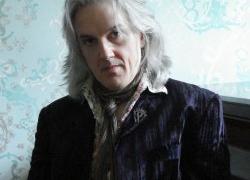Pianist David Brain offers an exciting combination of styles from the rich keyboard repertoire of the past two hundred years, from the steely modernism of Tippett to the jazz-inspired creations of Kapustin, taking in Liszt’s Mephisto Waltz No.1, Schumann’s Kreisleriana and Haydn’s brilliant Sonata No.38 in F major.
Programme:
Tippett - Second Sonata
Haydn - Sonata in F major, Hob. XVI/23
Liszt - Mephisto Waltz No.1
Kapustin - Prelude and Fugue in F major, Op.82, No.3
Schumann - Kreisleriana, Op.16
David Brain breaks the mould of the modern virtuoso pianist, having perfected his piano technique relatively late in life and away from the glare of the concert platform. He owes much to the great British pianist, John Bingham, with whom he studied as a postgraduate in London in the late 1980s, although the fruits of this instruction would only fully emerge later.
This programme illustrates the wide range of musical idioms with which he is in sympathy, beginning with Tippett’s single movement Second Sonata from 1962 - a work with which Brain won the British Music Society Piano Awards of 1988. This powerful, yet lyrical work is constructed from an ingenious and dramatic sequence of independent thematic groups, each with its own tempo. The Haydn Sonata which follows, F major, Hob.XVI/23, is the third, and possibly the most brilliant, of a group of six dedicated to the composer’s patron, Nikolaus Esterházy, in 1773. For those more familiar with Haydn’s jocular idiom the quiet tragedy of the slow movement may come as something of a surprise.
Liszt’s perennial Mephisto Waltz No.1 first started life as an orchestral work, yet this transcription is so outstandingly vivid one could be forgiven for thinking it an original piano work. It relates the story of Mephistopheles leading Faust to a village inn and of the wild dancing and riotousness therein. Nikolai Kapustin, the Ukrainian composer, writes “classical” works using the idiom of jazz. His little known Twenty-four Preludes and Fugues, Op.82 from the mid 1990s is a mighty work of about an hour and half’s duration with an ingenious key sequence until all the tonalities have been presented. The F major is the third in the set and, as in the whole of Op.82, both Prelude and Fugue are thematically related to one another.
Brain’s recording of Kapustin’s 24 Preludes Op.53 and Sonata No.1, Op.39 has been described by various critics as “dazzling” and “persuasive”, with Andrew McGregor, in his CD Review programme on Radio 3, noting that his playing “really taps well into the complexity and inventive joy of the music”. Schumann’s masterpiece, Kreisleriana, Op.16, concludes the recital. Written in just four days in 1838, the design is a familiar one: a suite-like succession of eight closely corresponding movements, this time on the theme of E.T.A. Hoffmann’s eccentric Kapellmeister, Kreisler, swinging rapidly in mood from tumultuous élan to the most private introspection.
Piano Recital with David Brain
The Forge, 3-7 Delancey Street, London

Ad
Event has ended
This event ended on Monday 25th of January 2016
This event ended on Monday 25th of January 2016
Admission
£12/£10
£12/£10
Tags:
Music
User Reviews
There are no user reviews
